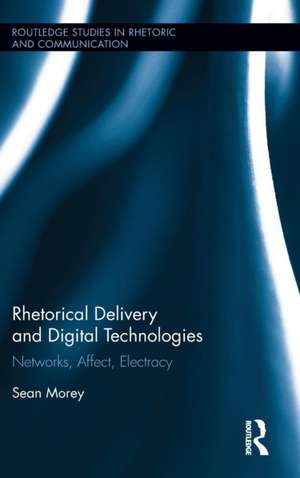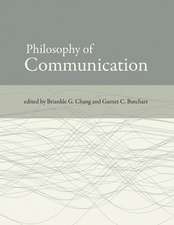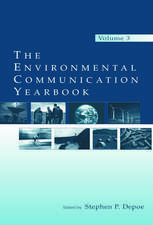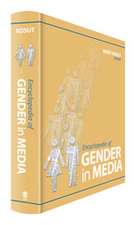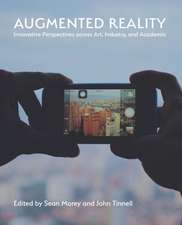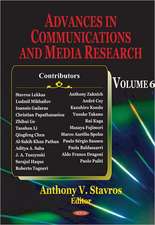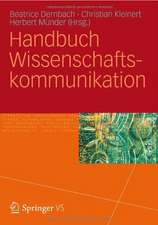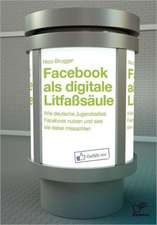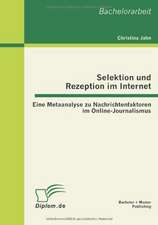Rhetorical Delivery and Digital Technologies: Networks, Affect, Electracy: Routledge Studies in Rhetoric and Communication
Autor Sean Moreyen Limba Engleză Hardback – 24 noi 2015
| Toate formatele și edițiile | Preț | Express |
|---|---|---|
| Paperback (1) | 433.26 lei 6-8 săpt. | |
| Taylor & Francis – 8 dec 2017 | 433.26 lei 6-8 săpt. | |
| Hardback (1) | 1166.68 lei 6-8 săpt. | |
| Taylor & Francis – 24 noi 2015 | 1166.68 lei 6-8 săpt. |
Din seria Routledge Studies in Rhetoric and Communication
-
 Preț: 386.43 lei
Preț: 386.43 lei -
 Preț: 354.96 lei
Preț: 354.96 lei - 18%
 Preț: 1001.07 lei
Preț: 1001.07 lei -
 Preț: 462.63 lei
Preț: 462.63 lei - 12%
 Preț: 312.43 lei
Preț: 312.43 lei -
 Preț: 389.38 lei
Preț: 389.38 lei -
 Preț: 309.69 lei
Preț: 309.69 lei - 20%
 Preț: 373.53 lei
Preț: 373.53 lei -
 Preț: 465.49 lei
Preț: 465.49 lei - 18%
 Preț: 997.90 lei
Preț: 997.90 lei -
 Preț: 388.16 lei
Preț: 388.16 lei -
 Preț: 363.00 lei
Preț: 363.00 lei - 18%
 Preț: 1218.12 lei
Preț: 1218.12 lei - 18%
 Preț: 1060.87 lei
Preț: 1060.87 lei - 18%
 Preț: 1106.02 lei
Preț: 1106.02 lei - 18%
 Preț: 1113.12 lei
Preț: 1113.12 lei -
 Preț: 317.48 lei
Preț: 317.48 lei -
 Preț: 436.14 lei
Preț: 436.14 lei - 18%
 Preț: 1004.20 lei
Preț: 1004.20 lei -
 Preț: 411.42 lei
Preț: 411.42 lei -
 Preț: 449.41 lei
Preț: 449.41 lei - 18%
 Preț: 1116.38 lei
Preț: 1116.38 lei - 15%
 Preț: 421.44 lei
Preț: 421.44 lei - 18%
 Preț: 1163.66 lei
Preț: 1163.66 lei - 18%
 Preț: 1059.14 lei
Preț: 1059.14 lei - 26%
 Preț: 875.55 lei
Preț: 875.55 lei - 34%
 Preț: 184.00 lei
Preț: 184.00 lei - 18%
 Preț: 1109.99 lei
Preț: 1109.99 lei - 18%
 Preț: 1053.16 lei
Preț: 1053.16 lei - 18%
 Preț: 1057.05 lei
Preț: 1057.05 lei - 18%
 Preț: 1330.34 lei
Preț: 1330.34 lei - 30%
 Preț: 849.29 lei
Preț: 849.29 lei -
 Preț: 462.63 lei
Preț: 462.63 lei - 18%
 Preț: 1218.08 lei
Preț: 1218.08 lei - 18%
 Preț: 1056.71 lei
Preț: 1056.71 lei - 18%
 Preț: 1056.35 lei
Preț: 1056.35 lei
Preț: 1166.68 lei
Preț vechi: 1422.77 lei
-18% Nou
Puncte Express: 1750
Preț estimativ în valută:
223.24€ • 233.92$ • 184.55£
223.24€ • 233.92$ • 184.55£
Carte tipărită la comandă
Livrare economică 11-25 aprilie
Preluare comenzi: 021 569.72.76
Specificații
ISBN-13: 9781138925441
ISBN-10: 1138925446
Pagini: 278
Ilustrații: 3
Dimensiuni: 152 x 229 x 18 mm
Greutate: 0.54 kg
Ediția:1
Editura: Taylor & Francis
Colecția Routledge
Seria Routledge Studies in Rhetoric and Communication
Locul publicării:Oxford, United Kingdom
ISBN-10: 1138925446
Pagini: 278
Ilustrații: 3
Dimensiuni: 152 x 229 x 18 mm
Greutate: 0.54 kg
Ediția:1
Editura: Taylor & Francis
Colecția Routledge
Seria Routledge Studies in Rhetoric and Communication
Locul publicării:Oxford, United Kingdom
Public țintă
Postgraduate and UndergraduateCuprins
Introduction: The Rebirth of Delivery Part 1: What is Delivery? 1. Declassifying Delivery 2. Reclassifying Delivery Part 2: Who Delivers? 3. Becoming Delivery-Machine—Emotion, Feeling, Affect 4. Becoming Shaman—Delivering the Invisible Part 3: How to Deliver? 5. Delivery-Networks 6. Posthuman Gestures and Electrate Attunements Postscript: The Death of Delivery (and Other Transitions)
Notă biografică
Sean Morey is Assistant Professor in the Department of English at the University of Tennessee, Knoxville, USA.
Recenzii
"Like delivery itself, Sean Morey’s book offers more than it suggests at first glance. Beneath its insightful readings of delivery/hyprokrisis in the classical tradition and its examinations of delivery’s many meanings and possibilities in new media contexts, it delivers something else as well: a new style of reading and writing—indeed, a new method for rhetorical inquiry—specifically attuned to the medial logics of the digital age."
- Scot Barnett, Indiana University, USA
"Rhetorical Delivery and Digital Technologies offers a way of rethinking delivery that is appropriate for the digital age, one in which electracy replaces digital literacy, and delivery is reconceptualized not through print-based practices, but through the human and nonhuman nodes and networks of communication in a digital age. (...) Rhetorical Delivery and Digital Technologies offers a sound argument for a rebirth of delivery in the digital age.
- Bree McGregor, George Mason University
- Scot Barnett, Indiana University, USA
"Rhetorical Delivery and Digital Technologies offers a way of rethinking delivery that is appropriate for the digital age, one in which electracy replaces digital literacy, and delivery is reconceptualized not through print-based practices, but through the human and nonhuman nodes and networks of communication in a digital age. (...) Rhetorical Delivery and Digital Technologies offers a sound argument for a rebirth of delivery in the digital age.
- Bree McGregor, George Mason University
Descriere
This book theorizes digital logics and applications for the rhetorical canon of delivery. Given its provocative and broad reframing of delivery, it provides original, robust ways to understand rhetorical delivery not only through a lens of digital writing technologies, but all historical means of enacting delivery, offering implications that will ultimately affect how scholars of rhetoric will come to view not only the other canons of rhetoric, but rhetoric as a whole.
